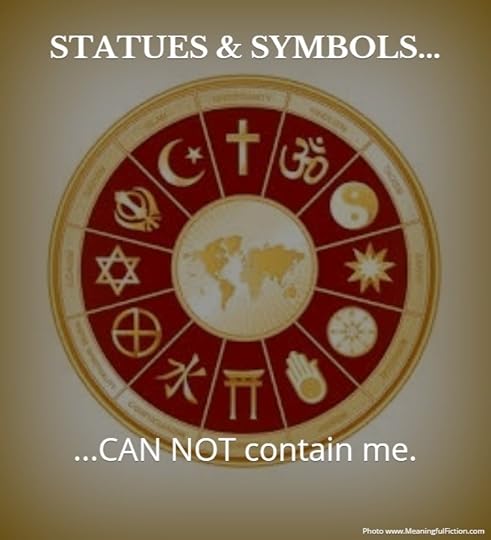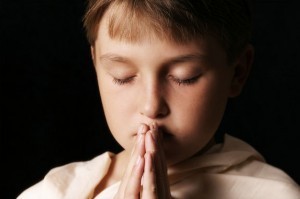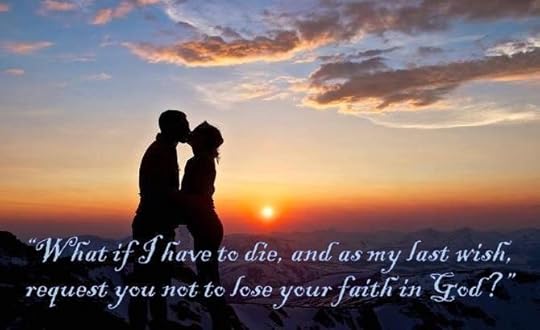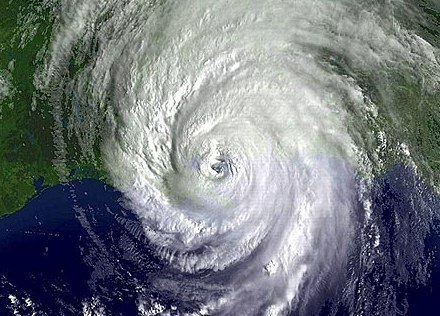Sanjay Kumar's Blog: Meaningful Fiction
February 1, 2015
Charlie Hebdo & the Right to Ridicule Religion
I often wonder if freedom of speech in a secular nation should grant the right to ridicule a religion. And, not just ridicule a religion with intelligent logic, but employ liberal use of obscenity and vulgarity in the process – like Charlie Hebdo did. To consider a specific example, would a teenager be justified in sticking his middle-finger out right in face of Pope and utter some obscene words? If he did that in public, say during a procession, there are good chances he may be beaten badly, if not killed altogether. It may become secondary if the teenager has reasons for his behaviour – for example, he could have been molested by a priest as a young child.
In India, you may expect similar outrage if a liberal magazine dares to print nude cartoons of Hindu Gods and Goddesses. It matter little if the cartoons are utterly hilarious or simply crass, the office of that magazine will surely be ransacked and burned. We have actually seen much worse over the years – throw a slaughtered cow in front of a temple or a pig in front of a mosque and riots are guaranteed.
Please allow me to clarify – I am not siding with the terrorists in the Charlie Hebdo case. No sane person ever would. Not even God. Not even a Muslim God for that matter, assuming there was a different God for each religion, unless God was being forced to take a side by Taliban or ISIS.
Coming back to our central issue – should a person be allowed to ridicule a religion, and if yes, to what extent?
The question is important because – let’s face it – it is easy to ridicule religion, and more so when it is someone else’s religion. Primarily because most religions are ridiculously out of date with the reality we live in today. All it takes is a curious mind that is intelligent enough to use logical reasoning and daring enough to raise its voice. I vaguely recall myself being a little over ten when the concepts of middle school science had begun to fascinate me. Not sure if it was introduction to sub-atomic particles, law of conservation of matter or something else, but suddenly my mind was host to too many questions challenging the world of myths and mythology around me. How can something (Gods and ghosts alike) take shape out of thin air and then disappear completely? If India had perfected the science of plastic surgery (Ganesha) and flying (Ravana), then why did we lose those capabilities? More than two decades back, when people were religiously offering milk to Lord Ganesha idols, feeling certain the milk was making its way to His belly, I couldn’t help laughing that no one could notice the milk flowing down the drain.
The growing literacy and the scientific achievements over the past century have made our religions even more obsolete and easy to challenge. Gone are the days when a priest was the most educated person in the society – with all important religious verses memorized, expert knowledge of astrology and mastery in a complex language like Sanskrit. These days, a teenager probably reads more number of books, and probably more complex, in ninth and tenth standard itself than what it takes to be a qualified priest in most religions.
During teens, my rational scientific enquiry gradually alienated me from religion – I challenged religion often, sometimes ridiculed it too – not in Charlie Hebdo style though. I would take pride in calling myself an agnostic – I believed there was some power that created this world (for some unknown reason – could be purely experimental), but didn’t have much clue about its form or shape. Despite being an agnostic, the powerful concept of religion has continued to fascinate me. Sometimes, I wonder what if I am wrong. What if there was God – exactly like different religions claim. What if Rama, Krishna, Budhha, Yehovah, Jesus, Mohammad, Guru Nanak and others were all real Gods or had some strong connection with the supernatural? A logical question that would follow from there is – are these Gods just one God behind the scenes, or they are totally different ones? Let’s consider these possibilities one by one.
Option 1 – One God for the Entire Universe
If there was just one God, then why would He preach different things to different sets of people, in different languages? What would He gain by creating such confusion among humans? Could it be population control? Like he created dependencies among vegetation (plants and trees), herbivores and carnivores to check their population, he may have created conflicting versions of religion to control the growing population of humans that had become far stronger than other animals. But then, human population has grown from one billion to seven billion in past two hundred years, and He is nowhere to be seen. The last recorded appearance of God was more than a thousand years ago. And, not to mention, with our advanced telescopes that can locate moons of distant planets, it should be much easier to record God’s presence, if He were to visit Earth in some visible form.
Option 2 – Multiple Gods
Having multiple Gods – one for each religion – is the other logical possibility. I wonder what would be the relationship among them – would they be pals or adversaries? Or, would they have a contract to focus on their respective geographical areas on earth, based on where people of their faith reside. But, that would mean their territories would change as kingdoms expand or shrink. How would they react to inter-religious conflict? Why would the Jewish God keep mum during the years of Holocaust, or why wouldn’t Muslim God stop Genghis Khan when he murdered more than half a million people. Being God, they must be stronger than Hitler and Genghis Khan, wouldn’t they? Or, why don’t the Hindu and Muslim Gods stop Indians when they clash with each other protecting their respective Gods – something that happens almost every year? Gods that need help from humans for their own protection don’t sound like omniscient or omnipotent.
My efforts to resolve this multiple-religion confusion and arrive at a credible definition of God have mostly led to some or the other absurd direction, and though I am far from understanding the supernatural yet, I have gained some meaningful realizations about religion. To begin with, I think the creators of religions were highly intelligent people, for their curiosity led them to find a meaningful order out of chaotic human life. They were courageous too, for they dared to challenge the status quo of their times – be it Jesus, Budhha, Mahavira, Mohammad or Guru Nanak. And, more than philosophers, they must have been very good psychologists – with a good grasp of human behaviour. Or, why else would the masses be influenced by their ideas, for centuries, without having seen God themselves?
Though most religions relied on some path-breaking ideas supported by logical reasoning during their inception, today the power of religion does not lie in its logic. It lies in its numbers. Despite failing at logic, religion continues to add a meaningful dimension to people’s lives. Freud called it the need for an oceanic feeling where embracing religion makes one feel a part of a larger and stronger group (an ocean). In simpler terms, religion provides people a sense of security at individual level. And at the macro level, religion helps hold the society together, by adding some sort of order to the masses – primarily through rites and rituals. Not to mention, religion has always been an important tool for rulers to control masses, and sometimes manipulate them against their normal human tendencies.
Logic is important, no doubt, but we humans are not always logical. We all have one or the other idiosyncrasies that defy logic. Smoking, drinking, and indulges in unhealthy food (primarily sugar and fatty foods) all fare poorly on the scale of logic, yet we do not question or ridicule every person we see indulging in such habits. I guess we follow a tacit rule there – if someone’s bad habits are affecting only themselves, we generally stay quiet and maintain our distance. Then, why not follow the same rule for religion – why not let religion be their private matter – just like smoking, drinking, or eating unhealthy food? Why not control our urge to shape someone else’s religious beliefs by forcing our supposedly better logic? Why mess with their religion when it is working perfectly fine for them?
Some part of me says, when it comes to religion, it is not just about logic. It is about the feeling of superiority – my community is better and stronger than yours. And, an obvious crack in other’s religious culture (women-objectification, child marriage, honour killing, martyrdom or child molestation by a priest) is too tempting an opportunity to miss – to maintain an upper hand, by display of one’s intelligence or brute force.
In the end, though I strongly condemn the terrorist attack on Charlie Hebdo, I feel uncomfortable saying ‘Je suis Charlie’, for I can’t bring myself up to support their cartoons – definitely not the ones that use obscenity. There is no doubt freedom of speech is important, but it must not be used to abuse another person or their dearly held personal beliefs. And, if you must comment, the intention must be not to ridicule, but to repair the cracks of religion. That way, I feel much more comfortable saying ‘I am PK’!
The post Charlie Hebdo & the Right to Ridicule Religion appeared first on Meaningful Fiction by Sanjay Kumar.
November 1, 2014
Statues and Symbols…
“What if people already think you do miracles?” Saksham asked. “What if they have already made their lives dependent on you – waiting for your miracles to pull them out of their misery?”
“Tell them to stop wasting their time. They must trust their abilities and believe in hard work.”
“They stand in line for hours, waiting for one brief look at your statue or a symbol of your presence – for they believe it will bring them good fortune.”
“Tell them symbols or statues cannot contain me. If they want to experience me, they must follow the goodness in their heart. I am with every well-intentioned effort that tries to make it a better world.”
“They perform various rites and rituals to please you, so you will take their problems away.”
“Tell them… only their actions can change their circumstances. They must learn to sail through life’s challenges. It may sound harsh, but survival is hard work. All species have the ability to take care of themselves, but it requires a strong will and persistent efforts to beat the odds and make a living. Those who adapt live on; others fall prey to circumstances, and soon become history.”
The post Statues and Symbols… appeared first on Meaningful Fiction by Sanjay Kumar.
October 13, 2014
Something, someday, somehow… the future of a developing nation!
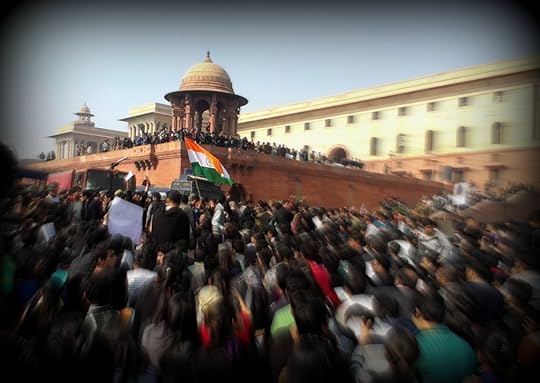
Monday was declared the day of national mourning! The rape victim, despite best efforts from doctors and prayers of the entire country, had succumbed to her injuries. She had been violated with such barbaric brutality that her soul decided to carry its search of a humane world elsewhere, away from this patriarchal world where a woman is considered safe only under the shadows of men in her life – her father, her husband, her brothers and her son.
The next day, Saksham and Asif gathered at the India Gate, along with thousands of other protesters. Banners and placards of various sizes filled the landscape. They stood near the edge of one lawn, trying to catch a bit of the receding sun, hoping to dry their clothes wetted by the water cannon the police had used a while back to control the protesters.
“Thank God, it is February.” Asif was shivering. “If it was January, I would be dead by now.” He gave a shaky smile as the cool breeze made him shudder. “I think they should use hot water in winter months. After all, we are their own countrymen, not from Pakistan, you know.”
“They know if they use hot water, people like you will come ready with towel and soap,” Saksham joked. As his gaze scanned the horizon, he got serious again. “What’s the plan now?”
“What do you think? We have toured the entire area and have seen them all – the NGO groups, political parties and, even the yoga guru.”
“That is what I find so damn crazy!” Saksham shook his head. “We are here with thousands of protesters, but still feel so isolated. All of us are mad over the same thing, but there is no effort to unite us and work for a concrete solution. It is like the protest is a goal in itself.”
“Well, what do you expect? We are Gandhi’s nation… we believe any problem can be solved if we march out in enough numbers. Protest runs in our blood, soon it will be part of our DNA,” Asif smirked. “By the way, there is one thing that unites us all… we all want death penalty for those rapists.”
“But, isn’t that so impractical? The court will not grant death penalty just because people are out on the roads demanding it. Besides, we all know how slow our courts are.”
“Personally, I appreciate that people are showing solidarity against bad governance. I know it is too early to say something, but may be something will come out of this. May be it will force the government or the police to do some tidying up,” Asif tried to stay optimistic. “May be it is just the beginning of a revolution, and as we move forward, this force may become stronger and stronger.”
“Something, someday, somehow, and too many maybe’s… sounds like the perfect future of a developing nation,” Saksham sneered. “These words are just blind hope… nothing will ever come out of them.”
The post Something, someday, somehow… the future of a developing nation! appeared first on Meaningful Fiction by Sanjay Kumar.
October 4, 2014
Hello Almighty!
They say You decide the fate of all,
Plan each life in minute detail.
Guess that must be hell lot of work,
Cuz there are seven billion of us,
Not to mention, million other species.
Do you really have that much time?
I wonder…
May be You do, may be You don’t.
All I know is You made me capable,
So I could.
And, so I do.
What if I have to Die?
“What if I have to die… and, as my last wish, request you not to lose your faith in Him?” he asked.
“Oh Saksham!” She hugged him dearly. “Please don’t talk like that. Nothing will happen to us. Ever.” Her voice almost broke down.
They spend next several minutes in silence, their arms wrapped around in a tight embrace, and their hearts beating against each other.
Then, he lifted her in his arms and carried her inside the room. She enjoyed the ride with a smile on her face; a smile that symbolized her unconditional surrender to his wishes – the surrender for a lifetime, and beyond.”
– Chapter “A Fine Obituary”
Katrina… who?
“Well the global warming induced calamities are already happening,” Prerna said. “Remember Katrina? It caused major devastation.”
“Well, she’s got killer looks, she will devastate,” Asif said jokingly.
“Hello? I am talking about Katrina in US, not India.”
“India or US… she’s gonna plunder and enslave men’s hearts wherever she goes.”
“Shut up!” Prerna held back a smile, knowing well Asif was referring to a Hindi movie actress with the same name. “You know I am talking about Katrina, the hurricane.”
“Oh, I never thought it that way, but you are right. When that hot lady dances, she is no less than a swirling hurricane.” Asif looked straight into Prerna’s eyes, with a sly smile.
“Asif, one more word, and I am gonna break your neck. Seriously!” She turned to Saksham. “Does this crazy friend of yours always behave in weird ways?”
“Not always,” Saksham replied. “Only when he is trying to make an impression… or is desperate for attention. Right now, it seems like both.”
– Chapter “Amazing World Heading for Disaster”
A Curse from Heavens
It was yet another beautiful sunset. As the evening sun approached the horizon, it painted the sky in a mix of orange and purple hues. A painter would marvel at this extraordinary display of colours and would yearn to put it down on canvas. Equally eager, a poet would take inspiration from the beautiful sky and pen down some romantic lines. But, among the inhabitants of this village, art or beauty had no takers. All that their hungry bellies and insecure minds worried about, day in and day out, was survival. They wanted money; they wanted food; they wanted a fair chance to earn their livelihood, so they could feed their families with pride. Rain, which could give them that chance, had eluded them thus far. They had been waiting for those dark dense clouds for so long that the mere sight of sun, however beautiful, felt like a curse from Heavens.
– Chapter “The Annual Disasters”
Whatever happened to Honesty?

“Who has time to think about honesty, Sir?” Jitendra seemed almost resigned in his stoicism. “Three fourths of the population is hungry – all they think, worry and dream about is their next meal. Those who have enough to eat are busy accumulating more – so they are never short of anything.”
“That is an extremely pessimistic view. I am sure there must be many who are still honest,” Saksham disagreed.
“I will tell you who is honest these days. Jiska daav nahin lagta, sirf wohi imaandar hai (one who hasn’t yet found a shortcut to make money, only that guy is honest). People are honest by their circumstances… not by choice.” Jitendra sounded bitter as he shared the belief he had learnt to live by.”
– Chapter “A Beautiful Day, Interrupted”
October 1, 2014
The Law of Karma
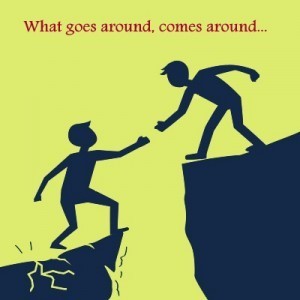
My stomach was almost full, so I gave my apple to a poor hungry man. He wanted to thank me, but I said no, “Just promise me, one day, when you have enough to feed yourself, you will give an apple to another hungry man. And, ask him to do the same for yet another man in need.”
The hungry man looked confused. Clutching the precious possession in his hand, he asked, “But, how would it help you?”
“Oh, trust me, it will. I will get my apple back, in this lifetime only,” I replied confidently. “What goes around, comes around!”
All that matters Is… a Purpose that defines You!
We are all wanderers in our own little worlds, embracing pleasure, avoiding pain, seeking happiness, and accumulating more assets – more than the person next door, or the person sitting in next cubicle. We crave for things that seem to matter the most, but soon they are replaced by new cravings. We fancy a new object of desire every other day, but irrespective of whether our cravings are satisfied or not, life generally moves on, more or less the same way. And then, we stumble upon an almost impossible purpose that stands right in front of us, blocking our way. It stares at us, rattling our core and questioning conventional wisdom. The odds may be stacked heavily against us, but the purpose cannot be ignored, avoided, or compromised – for going around it would mean a diminished self-worth, and regret that would last us a lifetime.
It is a purpose that defines the meaning of life for us; a purpose that defines our existence.
A farmer struggles under the weight of successive droughts. He toils his field relentlessly, year after year, while the government and the rain gods continue to make a mockery of his existence. He has a purpose that is much bigger than his own life – the life of his wife and children are at stake.
A young couple is madly in love. Their passion for each other extends beyond the harsh boundaries of their orthodox families and communities. Their love is too pure to understand the differences in their caste or religion. Their purpose to spend the rest of their lives in each other’s arms is far too precious to be compromised. They elope in search for a more humane world, while the death threat looms over their head.
A scientist tries to make the first light bulb. He has a vision to illuminate the world, beyond anyone’s comprehension. His purpose is far too important to be shadowed by repeated failures. He sees each failure merely as a life incident, a learning opportunity, a useful step that will improve the quality of his subsequent efforts.
Hoards of people follow the lead of a fearless saint, in search of freedom. Centuries of slavery has reduced human life to redundancy and humiliation – the status quo must be challenged with full vigor. Freedom becomes a purpose that cannot be denied, not anymore. The common man dons the courage of a fearless warrior, ready to lay their life without second thoughts.
The stories are endless, and they are all around us. People leave their stable careers and venture out behind their dreams – they fight for a cause, open a school, start a business, take up writing, join politics, move back to their village or country, among others. It could be your story or it could be mine – if not today, then tomorrow. At least once in our life, we are all challenged by circumstances to rise above the level of our mundane existence. We find a compelling purpose that we believe defines us better than our status quo. It takes us beyond our materialistic world and beyond our comforts. Of course, the path is extremely challenging – we must step over our insecurity and self-doubt. Then, we must find the courage and perseverance to go on and on, no matter how discouraging or testing the circumstances. What is right or wrong does not matter anymore, for the journey is more important than the destination.
All that matters is… we step forward and pursue the purpose that defines us.
Meaningful Fiction
In case of technical issues, you may also read my blog at http://meaningfulfiction.com/blog In addition to blog-posts, this blog includes excerpts from my books.
In case of technical issues, you may also read my blog at http://meaningfulfiction.com/blog ...more
- Sanjay Kumar's profile
- 3 followers


